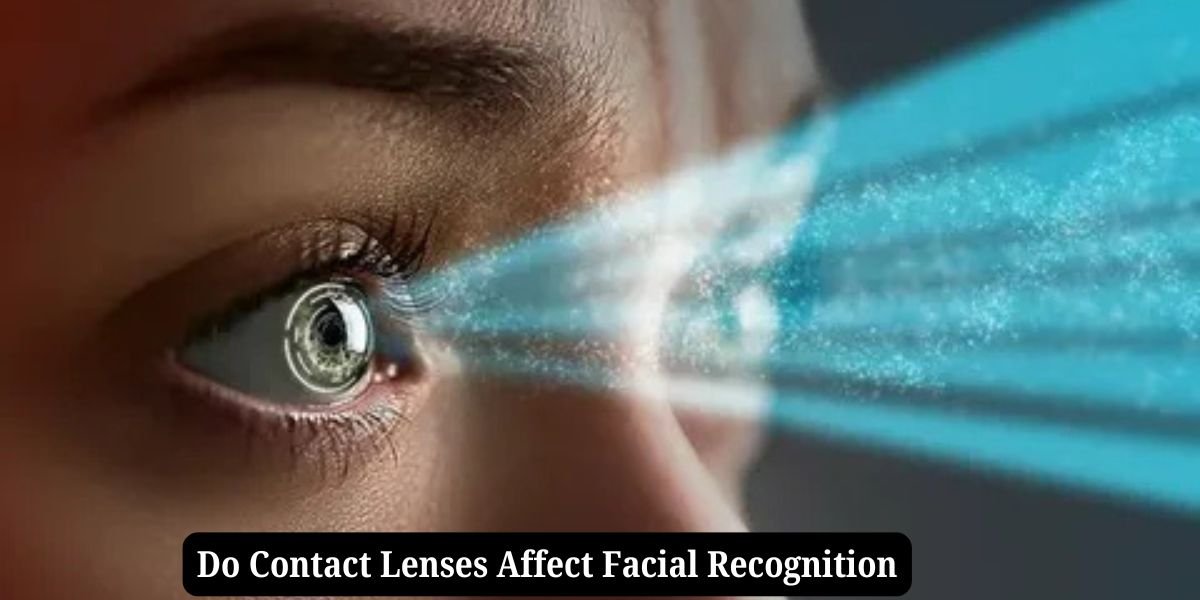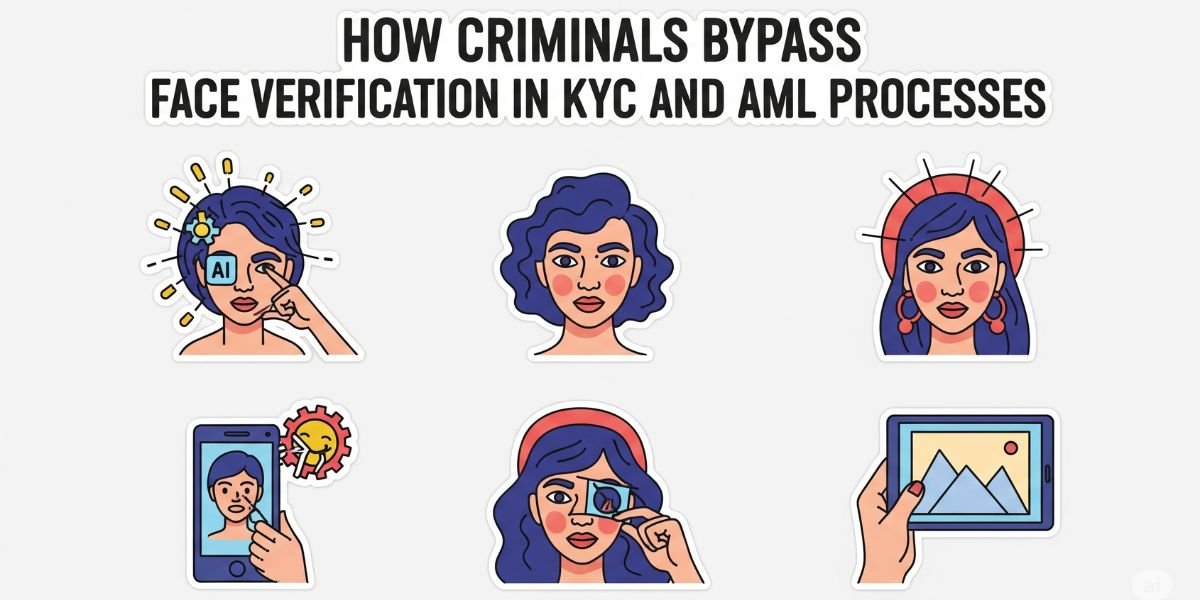Do contact lenses affect facial recognition technology? In recent years, facial recognition technology has seen amazing advancements, finding uses in everything from smartphone unlocking to border security. It has numerous applications, ranging from unlocking cellphones to verifying identity at border checks. However, it is now being considered whether or not contact lenses could disturb this technology. Do contact lenses affect facial recognition algorithms? There are several facial recognition systems, and we need to investigate how things like contact lenses impact them.
As these systems continue to improve, the question of whether contact lenses, designed to be quiet and enhance eyesight, could potentially alter a person’s appearance, even slightly, and thereby interfere with face recognition systems, becomes increasingly important. This article will go into the topic of contact lenses and their connection to face recognition technology, specifically looking at how these lenses can affect the accuracy and detection of these systems.
How Facial Recognition Works
A person’s unique facial characteristics are the building blocks of facial recognition technology. Among these characteristics are:
Facial landmarks are distinct features, such as the distance between the eyes, nose shape, chin contour, and other key points on the face.
Geometry and proportions refer to the placement and size relationships between various facial features.
Texture analysis refers to the fine details on the skin’s surface, including wrinkles, pores, and pigmentation patterns.
After that, it checks a database of recognized faces for matches using these unique data points. Facial expressions, lighting, and age are just a few of the variables that advanced face recognition systems take into account with their ever-improving machine learning algorithms.
What Are Contact Lenses?
Thin, curved discs of plastic or silicone, known as contact lenses, rest directly on the eye. People commonly use contact lenses to treat nearsightedness, farsightedness, and astigmatism. Changing or improving the look of one’s eye color is only one of the many cosmetic uses for contact lenses (e.g., colored lenses, special effects lenses).
Do contact lenses affect facial recognition? Despite their small size and lack of transparency, contact lenses may change the look of your eyes. Minor changes to the appearance of a person’s iris color, pupil size, and other eye-related characteristics may occur when they wear contact lenses, raising the question: Do contact lenses affect facial recognition systems that rely on these eye details?
Types of facial recognition systems
2D Facial Recognition: This system relies on analyzing 2D images of the face, focusing on features like the distance between eyes, nose, and mouth. While contact lenses might slightly alter the appearance of the eye region, it’s unlikely to significantly impact the overall facial structure, making this type of recognition relatively unaffected.
3D Facial Recognition: This technology uses depth sensors to create a 3D map of the face, capturing its contours and depth. Since contact lenses are thin and transparent, they typically do not alter the 3D structure of the face, so this system remains largely unaffected.
Iris Recognition: This system focuses on the unique patterns in the eye’s iris. Contact lenses, especially colored ones, can potentially interfere with this type of recognition by obscuring the iris pattern. However, advanced iris recognition systems can often compensate for minor variations, including those caused by contact lenses.
Contact Lenses and Facial Recognition: The Potential Impact
If you want to know how accurate face recognition systems are, you should know that even minor changes to your look can affect how well they operate. Do contact lenses affect facial recognition? The effect is conditional on several variables, despite their apparent insignificance.
One of the key characteristics used by facial recognition systems is the shape and size of the eyes, especially the iris. Contact lenses can alter the appearance of the iris, particularly colored or cosmetic lenses. Some lenses may make the iris appear larger or more uniform, while others may distort it slightly.
Cosmetic Lenses: These lenses can cover more of the iris or even change its color, potentially leading to mismatches if the system relies on matching iris patterns or eye geometry.
Pupil Size: Certain types of contact lenses can also affect the size of the pupil, which in turn can alter the overall appearance of the eyes. If a system uses pupil size as part of its identification criteria, this may introduce discrepancies.
Iris Recognition: Some advanced facial recognition systems include iris recognition as part of their process. The iris contains unique patterns of ridges, furrows, and other details that are highly specific to individuals. Contact lenses, especially colored or decorative lenses, could obscure or distort these patterns. This may make it harder for the system to accurately read and match the iris, leading to possible identification errors or failures.
Reflective and Light Distortion Contact lenses, particularly colored ones, may alter the way light interacts with the eyes. Certain lenses have a reflective surface or a tint that could change how the eye appears in images. If a facial recognition system depends on the precise mapping of the eye’s reflection of light (or ambient light), these alterations could affect the accuracy of the system’s match.
Cosmetic Lenses: In addition to correcting vision, cosmetic contact lenses can also alter the color or appearance of the eyes. Some of these lenses may obscure or alter distinct features like the iris’s natural texture or the contour of the eye. Despite their aesthetic purpose, these lenses could significantly affect facial recognition systems that depend on specific eye patterns for identification.
Eyelid Interaction: Although contact lenses are worn on the eye itself, they may indirectly affect the way facial recognition systems interpret eye features. Some people may squint or alter their eyelid shape when wearing lenses, especially if they are unfamiliar with the sensation of contact. Changes in eyelid positioning could modify how the system interprets the geometry of the eyes.
There are studies and research on contact lenses and facial recognition.
Few studies have looked at the question, Do contact lenses affect facial recognition technology? According to the principles of biometric identification and face recognition, even minor changes to facial features can impact the accuracy of systems. Researchers have found that two examples of environmental variables that affect iris recognition accuracy are pupil dilation and the use of corrective lenses.
Research also shows that AI-powered as well as deep learning-enabled face recognition systems are getting better at identifying and correcting for subtle differences in appearance. However, some adjustments continue to pose challenges, such as when the appearance of an individual’s eyes appears significantly different, a phenomenon commonly associated with cosmetic lenses.
Facial Recognition and Security Concerns
Businesses that depend on how to add facial recognition to iPhone in secret systems for security reasons are understandably concerned about the possibility that contact lenses might affect these systems. This presents problems like:
Access Control: Security systems using facial recognition for workplace or building access might experience issues if individuals wear contact lenses that obscure their eye patterns.
Mobile Devices: If contact lenses alter the natural look of an individual’s eyes, gadgets that use facial recognition to unlock smartphones or authenticate users may encounter difficulties in identifying them.
Law Enforcement and Border Control: In contexts where security systems use facial recognition for identification at airports or checkpoints, changes in eye appearance caused by lenses could lead to mismatches or errors, potentially compromising security.
Factors Affecting Facial Recognition Accuracy
Several elements, including lighting conditions, influence the accuracy of face recognition systems.
Lighting conditions: Poor lighting can significantly degrade the quality of the image, making it harder for the system to accurately identify individuals.
Facial expressions: Changes in facial expressions, such as smiling or frowning, can impact the recognition process.
Aging: Over time, facial features change, which can affect the accuracy of facial recognition systems.
Accessories: Items like hats, sunglasses, and masks can obscure facial features and hinder recognition.
How to Mitigate the Impact of Contact Lenses on Facial Recognition
It is critical to consider any changes brought on by contact lenses to guarantee correct and dependable face recognition. Here are a few ways to address these problems:
Multifactor Authentication: To lessen the impact of altered eye features, high-security applications can use facial recognition in conjunction with other authentication methods like fingerprint scanning or iris recognition.
Improved Calibration: Contact lens wearers, in particular, can have their appearance variations accounted for by modern systems.
Machine Learning Models: As facial recognition technology advances, we can train machine learning models to recognize subtle differences caused by contact lenses, thereby improving the overall accuracy and adaptability of the system.
User Awareness: To improve accuracy, certain systems, like mobile devices using “How to add another facial recognition to an iPhone without a passcode“, may prompt users to remove contact lenses during setup. Alternatively, we can design systems to recognize a wider variety of appearances.
Conclusion
Do contact lenses affect facial recognition? Contact lenses, especially colorful ones, can affect iris recognition systems, but generally, they do not impact facial recognition. A large number of today’s face recognition algorithms are robust enough to handle appearance fluctuations, such as those brought on by wearing contact lenses.
When assessing the possible effect of contact lenses on face recognition accuracy, it is crucial to take into account both the specific technology utilized and the individual’s unique facial traits. To sum up, contact lenses could interfere slightly with iris recognition, but they typically won’t disrupt other facial recognition systems. As technology advances, more precise and flexible face recognition, free from outside influences like contact lenses, is on the horizon.
Read more blog:
How to Remove Microsoft Outlook Security Fingerprint and Facial Recognition
FAQ’s
Can contact lenses interfere with facial recognition technology?
While contact lenses can slightly alter the appearance of the eye, most modern facial recognition systems are designed to account for such variations. However, in specific scenarios or with older systems, there might be a minor impact on accuracy.
Could colored contact lenses potentially confuse facial recognition systems?
While colored contact lenses can alter the appearance of the eye, most advanced facial recognition systems are capable of recognizing individuals even with significant changes in eye color. However, older or less sophisticated systems might be more susceptible to such variations.




